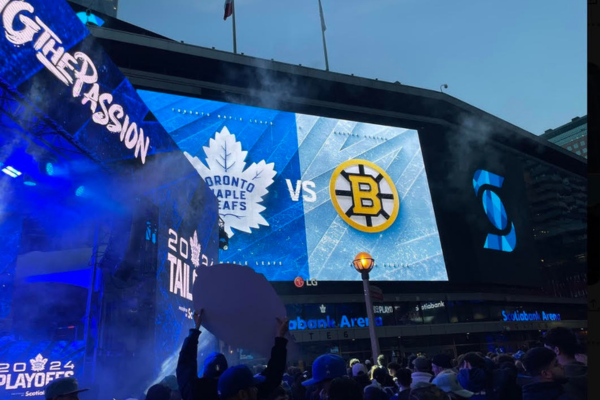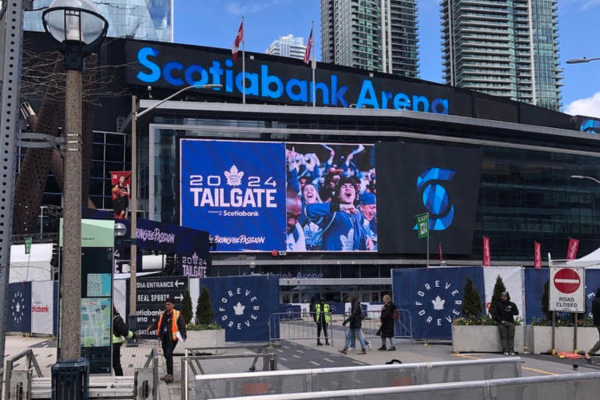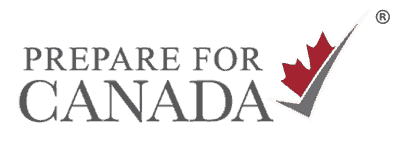
For many across Canada, the spring season means one thing – the Stanley Cup playoffs are here!
For newcomers to Canada and international students, the Stanley Cup playoffs between 16 National Hockey League (NHL) teams provide an insight into the sport of ice hockey and perhaps Canada’s national culture and identity.
Meanwhile, for the first time, teams in the Professional Women’s Hockey, including Toronto and Montreal, will compete for the Walter Cup.
Lloyd L. Wong and Martine Dennie are the authors of a 2021 report entitled “I feel more Canadian with hockey.” Identity and Belonging via Ice Hockey in a Diverse Canada.
Advertisement:
In their paper, published in Canadian Ethnic Studies, Wong and Dennie argue that their “findings show that for most immigrants and racialized minorities engaged in organized ice hockey, there is more likely a sense of Canadian national identity and a sense of belonging to Canada compared to the Canadian-born and to whites.”
They also state that the game and sport of ice hockey are embedded in Canada’s national culture and identity mythically and literally and that hockey has its most significant presence in Canada regarding people, places, and social spaces.
Hockey’s Popularity is Far-reaching
According to their report, about 1.8 million people globally are registered hockey players, of which over one-third, or 631,295, live in Canada.
Per capita, the number of registered hockey players in Canada is well above all other countries by a wide margin, with 17,277 registered hockey players per one million people.
Further, hockey’s popularity in Canada extends beyond players and referees to include coaches, managers, workers in the hockey industry, parents, and fans.
Advertisement:

Related Posts:
Why the Toronto Blue Jays are Canada’s Team
Settling in Canada with Confidence and Ease
Here are Some Facts from their Report:
- There are about 5,000 outdoor rinks and 3,300 indoor hockey arenas in Canada,
- The only other country with more than one thousand indoor arenas is the United States, which has about 1,535.
- There are 555,935 hockey players in the United States, 113,425 in the Czech Republic, 105,059 in Russia, 76,387 in Finland, and 63,901 in Sweden, rounding up the top six ranked hockey-playing countries.

As Wong and Dennie point out, Canada “is also an ‘immigration society’ where immigrants are considered as society-building assets and as central to national identity,” just like hockey.
Stanley Cup Playoffs Facts for Newcomers
So, here are some Stanley Cup facts for newcomers and international students who want to find out what all the fuss is about:
- The Stanley Cup is named after Frederick Stanley, the 16th Earl of Derby, who was Governor General of Canada from 1888 to 1893.
- Lord Stanley’s family were ice hockey fans. He donated the trophy in his name in 1892 as a challenge cup for Canada’s best amateur hockey clubs. Starting in 1909, only professional teams competed for the Cup. Since 1926, only teams of the National Hockey League (NHL) have competed for it.
- NHL teams play a gruelling 82-game regular season to determine who will compete for the Stanley Cup.
- Every year, 16 of the 32 teams in the NHL qualify for the Stanley Cup playoffs.
- The Stanley Cup playoffs started Saturday, April 20, and will end no later than June 24.
- CBC, Sportsnet, and OMNI broadcast Stanley Cup playoff games in Canada.
Stanley Cup Broadcast in Punjabi
- Hockey Night in Canada: Punjabi Edition also broadcasts playoff games every Saturday on OMNI Television. The broadcast crew comprises Randip Janda, Gurp Sian, Harpreet Pandher, Taqdeer Thindal, Amrit Gill, and Mantar Bhandal.
- Leaf Singh, a comedian and hockey insider, regularly posts about hockey and the playoffs on X (formerly Twitter).
- The eventual winner of the Stanley Cup will have played and won four rounds (each round is a best-of-seven series).
- Four Canadian teams qualified for the Stanley Cup playoffs this spring. They are the Toronto Maple Leafs, the Winnipeg Jets, the Edmonton Oilers and the Vancouver Canucks.
- The Winnipeg Jets were eliminated in the first round by the Colorado Avalanche.

- The Oilers, after eliminating the Los Angeles Kings in the first round, now play the Vancouver Canucks, who ousted the Nashville Predators. Oilers vs Canucks is an all-Canadian series.
- The Leafs lost to the Boston Bruins in overtime on Saturday, May 4 and were eliminated.
- The Calgary Flames, Ottawa Senators, and Montreal Canadiens did not qualify for the playoffs.
- No Canadian team in the NHL has won the Stanley Cup since 1993.
- The Montreal Canadiens were the last Canadian team to win the Cup.
- The Vegas Golden Knights, who play in Las Vegas, Nevada, are the defending Stanley Cup champion.
- According to BetMGM Sportsbook, the Carolina Hurricanes, Florida Panthers, and Dallas Stars (in order) were the betting favourites to win the Stanley Cup.
- Every NHL team features players from all over the world.
- The style of hockey in the Stanley Cup playoffs differs significantly from the regular season. It features more physicality, fewer penalties, and higher player passion and commitment.
- Stanley Cup playoff games are generally more low-scoring, defensive games than the regular season.
Meanwhile, another hockey playoff championship series is taking place this spring.
The Professional Women’s Hockey League (PWHL) is a new-team league in North America holding its first-ever playoff series.
Women Compete for the Walter Cup

There are six franchises (three from Canada and three from the United States). The three Canadian teams are PWHL Montreal, PWHL Ottawa, and PWHL Toronto.
Each franchise played a 32-game regular season to earn one of four places in a postseason tournament. The winner claims the “Walter Cup.”
On Feb. 17, The PWHL’s first game at Toronto’s Scotiabank Arena set a league and women’s hockey attendance record with a crowd of 19,285.
CBC and TSN, their French-language affiliates Radio-Canada and RDS, and Sportsnet broadcast PWHL games nationally in Canada. YouTube has global streaming.
Recently, Scotiabank announced that it had become the official bank of the PWHL.
The PWHL playoffs began May 8. The best four teams qualified for a postseason tournament that determines the champion. The playoffs comprise two semi-finals and a final played as a best-of-five series.
Toronto, Montreal, Boston and Minnesota all made the playoffs. Ottawa was eliminated in the final game of the regular season. Toronto, which finished first in the regular season, chose to play Minnesota, while Montreal played Boston.
Unfortunately, Montreal was eliminated by Boston in 3 straight games.
Obviously, between the Stanley Cup and the Walter Cup, there is plenty of hockey for newcomers and international students to embrace this spring.
Making Hockey More Inclusive
As Wong and Dennie wrote in their report:
“Engagement in the game, either as players or fans or in some other capacity, provides a multicultural common space potentially enabling interactive pluralism amongst diverse communities.
These findings further support the value of making hockey more inclusive through equity, diversity, and inclusion policies and initiatives.
Go, hockey! Go, Canada!
This story was updated on May 15.
CITATIONS:
SOURCES:
Steve Tustin is the Editor for Rentals for Newcomers and a contributing editor for Prepare for Canada. He is also the former managing editor of Storeys.com and a former senior editor at the Globe and Mail and the Toronto Star.
*Prepare for Canada did not use AI-generated content in writing this story; all sources are cited and credited where possible.
© Prepare for Canada 2024

